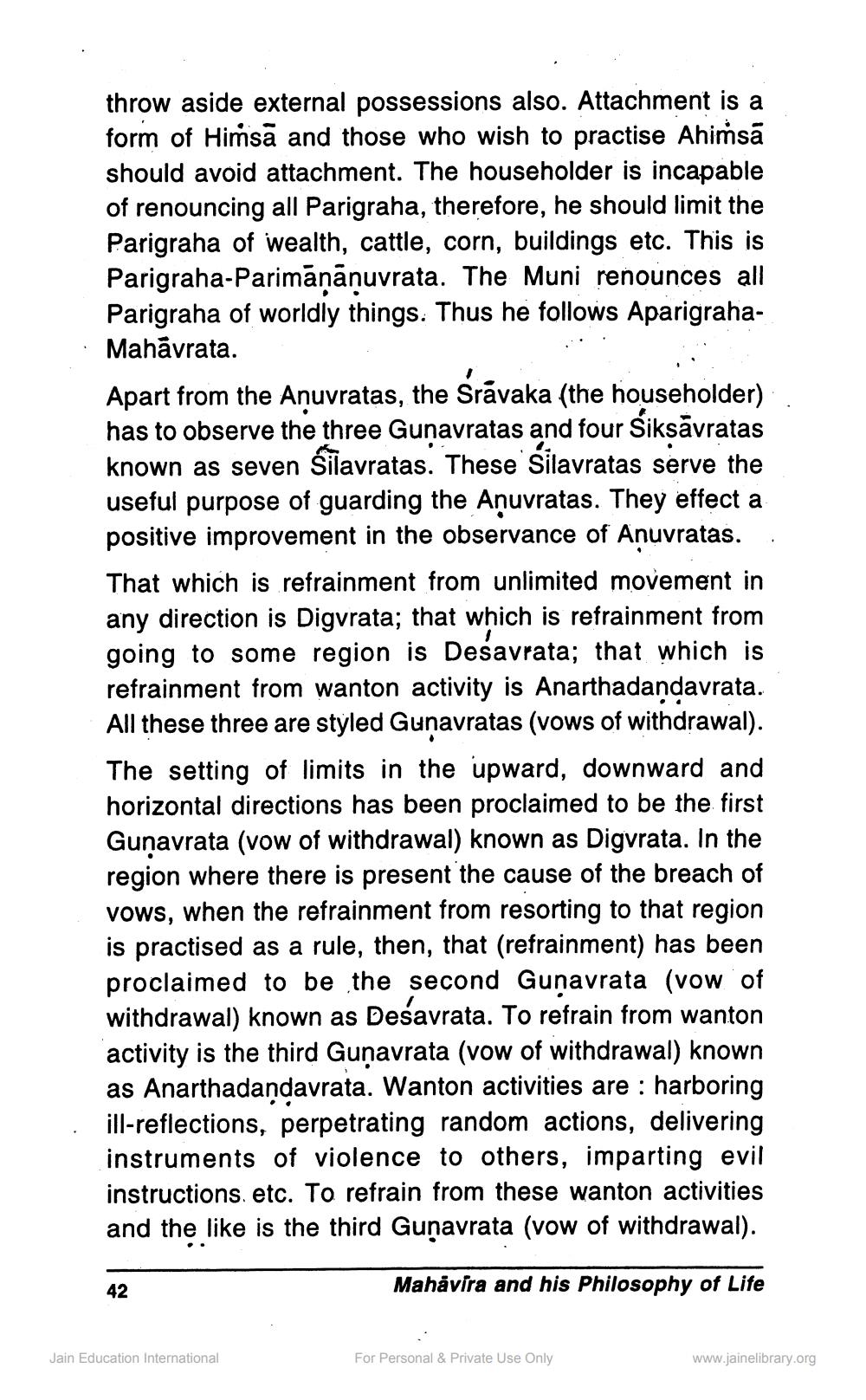________________
throw aside external possessions also. Attachment is a form of Himsā and those who wish to practise Ahiṁsā should avoid attachment. The householder is incapable of renouncing all Parigraha, therefore, he should limit the Parigraha of wealth, cattle, corn, buildings etc. This is Parigraha-Parimānānuvrata. The Muni renounces all Parigraha of worldly things. Thus he follows AparigrahaMahāvrata. Apart from the Anuvratas, the Sravaka (the householder) has to observe the three Guņavratas and four Siksāvratas known as seven Silavratas. These Silavratas serve the useful purpose of guarding the Anuvratas. They effect a positive improvement in the observance of Anuvratas.. That which is refrainment from unlimited movement in any direction is Digvrata; that which is refrainment from going to some region is Deśavrata; that which is refrainment from wanton activity is Anarthadandavrata. All these three are styled Gunavratas (vows of withdrawal). The setting of limits in the upward, downward and horizontal directions has been proclaimed to be the first Gunavrata (vow of withdrawal) known as Digvrata. In the region where there is present the cause of the breach of Vows, when the refrainment from resorting to that region is practised as a rule, then, that (refrainment) has been proclaimed to be the second Gunavrata (vow of withdrawal) known as Desavrata. To refrain from wanton activity is the third Gunavrata (vow of withdrawal) known as Anarthadandavrata. Wanton activities are : harboring ill-reflections, perpetrating random actions, delivering instruments of violence to others, imparting evil instructions, etc. To refrain from these wanton activities and the like is the third Gunavrata (vow of withdrawal).
42
Mahåvira and his Philosophy of Life
Jain Education International
For Personal & Private Use Only
www.jainelibrary.org




